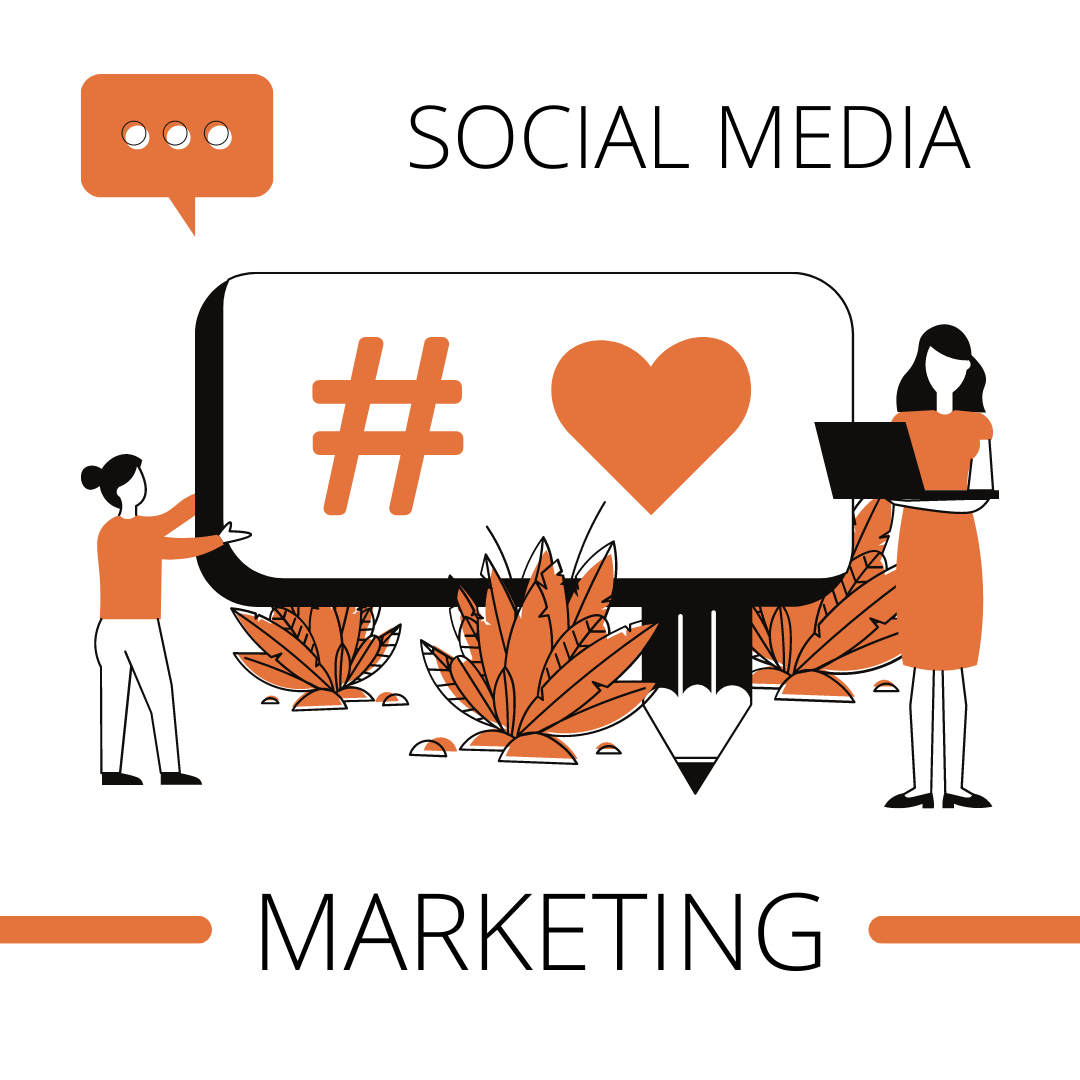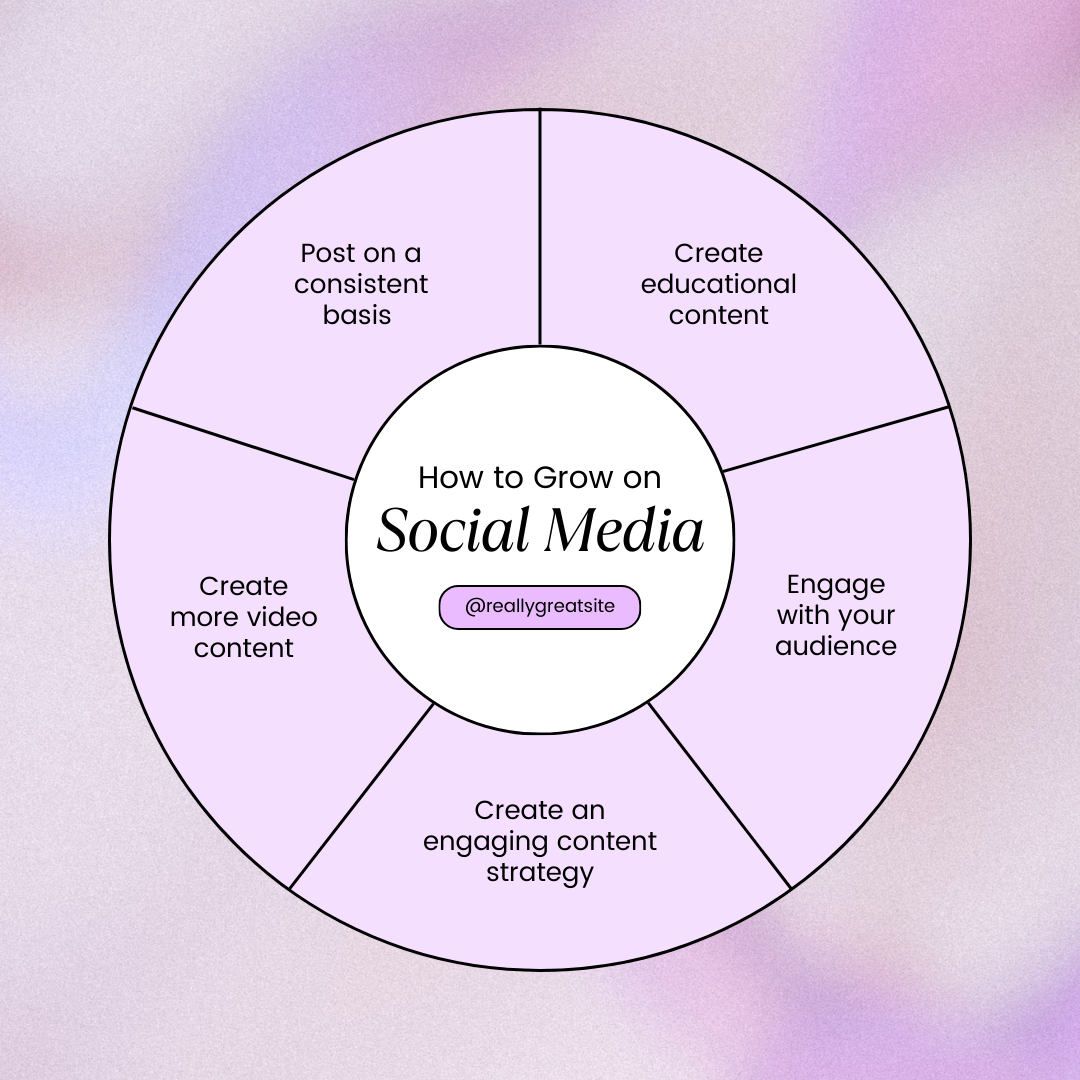
Know About Social Media Marketing for Businesses
Last Updated on July 25, 2023 by Andrew
What is Social Media Marketing?
Social Media Marketing (SMM) refers to the use of social media platforms and websites to promote products, services, or content to a target audience. It involves creating and sharing engaging and relevant content across various social media channels to build brand awareness, attract and engage customers, drive website traffic, and ultimately, achieve business goals.
SMM leverages the vast user base and interactive nature of social media platforms, such as Facebook, Instagram, Twitter, LinkedIn, YouTube, and others, to connect with potential customers directly. Through strategic content creation, sharing, and engagement, businesses can cultivate a loyal and active online community.
Key elements of Social Media Marketing include identifying target audiences, selecting appropriate social media platforms, creating compelling content, engaging with followers, analyzing performance metrics, and adapting strategies based on data-driven insights.
Effective SMM campaigns focus on building a strong brand presence, fostering authentic relationships, and providing value to the audience. It enables businesses to stay relevant in the digital landscape, drive conversions, and gain a competitive edge in today’s interconnected world.

Benefits of social media marketing
Social Media Marketing (SMM) offers a plethora of benefits for businesses of all sizes and industries. Some of the key advantages include:
- Enhanced Brand Visibility and Awareness: SMM allows businesses to reach a global audience and increase brand exposure. Engaging content and interactions with followers help create a recognizable and memorable brand presence.
- Increased Website Traffic and Conversions: By sharing links to their website on social media platforms, businesses can drive traffic to their site. This increased visibility can lead to higher conversion rates and sales.
- Better Customer Engagement and Loyalty: Social media enables direct communication with customers, fostering meaningful relationships and building brand loyalty. Promptly addressing queries and feedback helps establish trust and credibility.
- Targeted Advertising and Audience Segmentation: SMM platforms provide sophisticated targeting options, allowing businesses to reach specific demographics and interests. This ensures that marketing efforts are directed towards the right audience.
- Cost-Effective Marketing Channel: Compared to traditional advertising, SMM is generally more cost-effective. Businesses can achieve a significant reach and impact without the hefty price tag associated with traditional media.
- Real-Time Feedback and Market Insights: Through social listening and monitoring tools, businesses can gather real-time feedback from their audience. This data provides valuable insights into customer preferences and helps improve products and services.
- Influencer Marketing Opportunities: Partnering with influencers allows businesses to tap into their followers’ trust and reach a wider audience. Influencers can endorse products or services, leading to increased brand credibility and sales.
- Increased Search Engine Ranking: Active social media presence and engagement can positively impact a website’s search engine ranking. As content is shared and linked back to the website, it contributes to better organic visibility.
- Competitive Advantage: Businesses that excel in SMM gain a competitive edge. An engaging social media presence can set a brand apart from competitors, making it more appealing to potential customers.
- Measurable ROI and Data-Driven Insights: Social media platforms offer detailed analytics, allowing businesses to track the performance of their campaigns. This data-driven approach helps in refining strategies and optimizing future efforts.
- Crisis Management and Reputation Building: Social media provides an avenue for businesses to address any negative feedback or crises promptly. Responding professionally and empathetically can help mitigate reputational damage.
In conclusion, Social Media Marketing offers a wealth of advantages that enable businesses to connect with their audience, build brand loyalty, drive sales, and stay competitive in the digital age. When utilized strategically, SMM can be a powerful tool in achieving business objectives and fostering long-term success.
Social media marketing statistics
As of my last knowledge update in September 2021, here are some key social media marketing statistics:
- Global Social Media Usage: More than 4.5 billion people worldwide use social media, representing over half of the global population.
- Top Social Media Platforms: Facebook remains the most widely used social media platform, with over 2.8 billion monthly active users. Other popular platforms include YouTube, WhatsApp, Instagram, and Facebook Messenger.
- Social Media Users by Region: Asia-Pacific has the highest number of social media users, followed by North America and Europe.
- Mobile Usage Dominance: Around 98% of social media users access platforms via mobile devices, highlighting the importance of mobile-friendly marketing strategies.
- Social Media Ad Spending: Social media advertising spending is continuously growing. In 2021, it was estimated to reach over $127 billion.
- Preferred Social Media Content: Video content is increasingly popular, with more than 70% of users preferring to watch videos to learn about products and services.
- Influencer Marketing Impact: Over 80% of marketers find influencer marketing effective, and businesses earn an average of $5.20 for every $1 spent on influencer marketing.
- Engagement on Social Media: Visual content generates higher engagement rates. Tweets with images receive 150% more retweets, and Facebook posts with images see 2.3 times more engagement.
- Best Time to Post: The ideal posting times vary by platform and target audience. Generally, mid-week during business hours tends to perform well.
- User-Generated Content (UGC): Consumers trust UGC more than branded content. About 79% of people say UGC highly impacts their purchasing decisions.
- Social Media for Customer Service: Over 60% of consumers prefer using social media to reach out for customer service inquiries.

Social media marketing strategy
A successful social media marketing strategy involves a well-thought-out plan to leverage social media platforms effectively for achieving specific business goals. Here are the key steps to creating an impactful social media marketing strategy:
- Set Clear Objectives: Define your social media marketing goals. Whether it’s increasing brand awareness, driving website traffic, generating leads, or boosting sales, clearly outline what you aim to achieve through your efforts.
- Know Your Target Audience: Understand your target audience’s demographics, interests, behaviors, and pain points. This knowledge will help tailor your content and engagement to resonate with your ideal customers.
- Choose the Right Platforms: Select social media platforms that align with your target audience and business objectives. Focus on platforms where your audience is most active.
- Craft a Unique Brand Voice: Develop a consistent brand voice that reflects your brand’s personality and values. This voice should be reflected in your content, interactions, and visual elements.
- Content Strategy: Plan a diverse content strategy that includes a mix of informative, entertaining, and promotional content. Create engaging visuals, videos, blog posts, infographics, and user-generated content.
- Content Calendar and Scheduling: Create a content calendar to schedule and organize your posts. Consistency is key in social media marketing, so plan and schedule your content in advance.
- Engagement and Interaction: Actively engage with your audience by responding to comments, messages, and mentions. Encourage conversations, ask questions, and participate in relevant discussions.
- Incorporate Hashtags and Trends: Use relevant hashtags and participate in trending topics to expand your reach and visibility on social media.
- Monitor and Analyze Performance: Regularly track key metrics like reach, engagement, click-through rates, and conversions. Use analytics tools to gain insights into the effectiveness of your strategy.
- Stay Updated on Trends: Social media trends evolve rapidly, so stay informed about the latest features, algorithms, and best practices for each platform.
- Experiment and Adapt: Be open to experimentation. Test different content formats, posting times, and strategies to see what resonates best with your audience. Adapt your approach based on the data and insights you gather.
- Measure ROI: Evaluate the return on investment (ROI) of your social media marketing efforts. Analyze the impact of your strategy on business objectives and adjust your approach accordingly.
Creating your social media marketing plan
Creating a comprehensive social media marketing plan is crucial for achieving your business objectives effectively. Here’s a step-by-step guide to help you develop a successful plan:
- Define Your Goals: Clearly outline the specific goals you want to achieve through your social media marketing efforts. Whether it’s increasing brand awareness, driving website traffic, boosting sales, or building customer engagement, having well-defined goals will guide your strategy.
- Identify Your Target Audience: Understand your target audience’s demographics, interests, behaviors, and pain points. This knowledge will help you tailor your content and messages to resonate with your ideal customers.
- Choose the Right Social Media Platforms: Select the platforms that align with your target audience and business goals. Focus on platforms where your audience is most active and engaged.
- Competitor Analysis: Research your competitors’ social media presence to identify their strengths, weaknesses, and successful strategies. Learn from their experiences to refine your own approach.
- Content Strategy: Plan a diverse content strategy that includes a mix of informative, entertaining, and promotional content. Create engaging visuals, videos, blog posts, infographics, and user-generated content.
- Content Calendar and Scheduling: Develop a content calendar to schedule and organize your posts. Consistency is key in social media marketing, so plan and schedule your content in advance.
- Engagement Strategy: Outline how you will actively engage with your audience. Respond to comments, messages, and mentions promptly. Encourage conversations, ask questions, and participate in relevant discussions.
- Hashtag and Trend Strategy: Incorporate relevant hashtags and participate in trending topics to expand your reach and visibility on social media.
- Advertising and Promotion: Plan your paid social media advertising and promotion strategies. Set a budget, target specific audience segments, and choose the right ad formats for your goals.
- Social Media Influencers: Consider leveraging influencer marketing to reach a broader audience and gain credibility.
- Measurement and Analytics: Determine the key performance indicators (KPIs) you will track to measure the success of your social media marketing plan. Use analytics tools to gather data and insights on your performance.
- Budget Allocation: Allocate your resources effectively, balancing organic and paid efforts based on your goals and available budget.
- Testing and Optimization: Be open to experimentation. Test different content formats, posting times, and strategies to see what resonates best with your audience. Continuously optimize your plan based on the data and insights you gather.
- Crisis Management: Have a plan in place to handle potential social media crises or negative feedback in a professional and timely manner.
- Team and Responsibilities: Define roles and responsibilities within your social media marketing team, if applicable, to ensure smooth execution of the plan.
- Timeline and Review: Set specific timelines for the implementation of your plan and regular review periods to assess progress and make necessary adjustments.

Social media marketing tips
Certainly! Here are some valuable social media marketing tips to enhance your strategy and achieve better results:
- Know Your Audience: Understand your target audience’s preferences, interests, and pain points. Tailor your content to resonate with them and address their needs effectively.
- Be Consistent: Maintain a consistent brand voice and visual identity across all your social media platforms. Consistency builds brand recognition and fosters trust with your audience.
- Focus on Quality Content: Share valuable and engaging content that provides value to your audience. Utilize a mix of visuals, videos, infographics, and user-generated content to keep your feed diverse and interesting.
- Use Visuals Wisely: Visual content is more captivating than text alone. Use eye-catching images and videos to capture your audience’s attention and convey your message effectively.
- Engage and Respond Promptly: Be responsive to comments, messages, and mentions. Engage in conversations with your audience and show appreciation for their interactions.
- Incorporate Hashtags Strategically: Use relevant and trending hashtags to increase the discoverability of your content. However, avoid overusing hashtags, as it may appear spammy.
- Leverage User-Generated Content (UGC): Encourage your audience to create and share content related to your brand. UGC builds trust and authenticity.
- Experiment with Content Formats: Test different content formats, such as live videos, stories, polls, and quizzes, to keep your audience engaged and interested.
- Optimize Posting Times: Identify the best times to post on each social media platform based on your audience’s activity. Use scheduling tools to ensure your posts go out at optimal times.
- Analyze and Adjust: Regularly review your social media analytics to track the performance of your content. Use the data to refine your strategy and focus on what works best.
- Stay Relevant with Trends: Stay updated with the latest social media trends and adapt your content and approach accordingly. Trending topics can boost your visibility and engagement.
- Build Relationships with Influencers: Partner with influencers in your niche to extend your reach and credibility. Collaborating with influencers can introduce your brand to a wider audience.
- Monitor Competitors: Keep an eye on your competitors’ social media activities to gain insights into their strategies. Learn from their successes and failures to improve your own approach.
- Create Shareable Content: Develop content that is shareable and encourages your audience to spread the word. Contests, giveaways, and viral-worthy content can increase your reach organically.
- Personalize Customer Interactions: Address your audience individually whenever possible. Personalized responses and messages make your audience feel valued.
- Promote Customer Reviews and Testimonials: Share positive customer reviews and testimonials to build trust and showcase your brand’s reputation.
The best social media marketing platforms
The choice of the best social media marketing platforms depends on your business goals, target audience, and the type of content you want to share. Here are some of the top social media platforms that businesses commonly leverage for effective marketing:
- Facebook: With over 2.8 billion monthly active users, Facebook is the largest social media platform. It offers a diverse user base, advanced targeting options for ads, and various content formats, making it suitable for most businesses.
- Instagram: Instagram, with over 1 billion monthly active users, is a visual-centric platform perfect for businesses that can showcase their products, services, or lifestyle through engaging images and videos.
- YouTube: As the second-largest search engine, YouTube is ideal for businesses that can create and share video content. It’s perfect for tutorials, product demos, and brand storytelling.
- Twitter: Twitter’s fast-paced nature is well-suited for real-time updates, news, and engaging in trending conversations. It’s effective for businesses aiming to share timely information and engage with their audience.
- LinkedIn: LinkedIn is a professional networking platform, making it a great choice for B2B businesses. It’s ideal for thought leadership content, networking, and recruiting.
- Pinterest: Pinterest is a visually-driven platform that works well for businesses with visually appealing products or services. It’s particularly popular for fashion, home decor, food, and lifestyle industries.
- TikTok: TikTok’s short-form videos cater to a younger demographic and have become increasingly popular for brands aiming to reach Gen Z and Millennial audiences.
- Snapchat: Snapchat’s disappearing stories and creative filters appeal to a younger audience. It’s suitable for brands looking to create authentic and interactive content.
- Reddit: Reddit is a community-driven platform that can be effective for niche marketing and engaging in specific interest-based discussions.
- WhatsApp: While primarily a messaging app, WhatsApp Business allows businesses to communicate with customers, share updates, and provide customer support.

Social media marketing courses
There are numerous social media marketing courses available that cater to different skill levels and objectives. Whether you’re a beginner looking to grasp the basics or a seasoned marketer seeking to refine your strategies, there’s a course for you. Here are some popular social media marketing courses:
- Social Media Marketing Specialization by Coursera: Offered by Northwestern University, this specialization covers social media marketing strategies, content creation, advertising, and analytics.
- Social Media Marketing Mastery by Udemy: This comprehensive course teaches the essentials of social media marketing, including platform-specific strategies and advertising techniques.
- HubSpot Social Media Certification: HubSpot’s course covers social media strategy, content creation, and measuring ROI, providing a well-rounded understanding of social media marketing.
- Facebook Blueprint Certification: Facebook’s training program covers advertising on Facebook and Instagram, targeting options, and analytics.
- LinkedIn Learning (formerly Lynda.com): LinkedIn Learning offers a wide range of social media marketing courses, covering various platforms and strategies.
- Hootsuite Academy: Hootsuite provides a variety of courses on social media marketing, including social media strategy, content marketing, and social advertising.
- Buffer Academy: Buffer’s courses cover social media strategies, content planning, and analytics.
- Social Media Marketing Course by Simplilearn: This course offers a comprehensive curriculum on social media marketing techniques and best practices.
- Google Digital Garage: Google’s free online course covers various digital marketing aspects, including social media marketing fundamentals.
- Social Media Marketing Courses on Skillshare: Skillshare offers a range of courses taught by industry professionals on various social media marketing topics.
Social media marketing services
| cial Media Marketing Services | Description |
|---|---|
| Social Media Strategy Development | Customized strategies aligned with business goals and target audience. |
| Content Creation and Management | Engaging and relevant content, including graphics, videos, and captions. |
| Social Media Advertising | Paid campaigns to reach specific target audiences and achieve goals. |
| Community Management | Engaging with the audience, responding to comments and messages. |
| Influencer Marketing | Collaborating with influencers for brand promotion. |
| Social Media Analytics and Reporting | Tracking metrics and providing insights for improvement. |
| Competitor Analysis | Analyzing competitors’ social media activities for opportunities. |
| Social Listening and Reputation Management | Monitoring conversations and managing brand reputation. |
| Platform Optimization | Optimizing profiles for a consistent brand image. |
| Social Media Training and Consulting | Empowering in-house teams with training and advice. |
| Contests and Giveaways | Planning and executing engaging promotions. |
| Social Media Crisis Management | Addressing crises and mitigating reputational damage. |
Social media marketing services are offered by agencies or professionals who specialize in helping businesses create and implement effective social media strategies. These services aim to leverage the power of social media platforms to achieve specific marketing goals and grow a brand’s online presence. Here are some common social media marketing services:
- Social Media Strategy Development: Professionals analyze your business, target audience, and industry to create a customized social media strategy aligned with your goals.
- Content Creation and Management: Social media marketers develop engaging and relevant content, including graphics, videos, blog posts, and captions, to resonate with your audience.
- Social Media Advertising: Experts set up and manage paid social media advertising campaigns to reach specific target audiences and achieve desired outcomes.
- Community Management: Social media managers engage with your audience, respond to comments and messages, and build a community around your brand.
- Influencer Marketing: Social media marketing services can identify and collaborate with influencers who can promote your brand to their followers.
- Social Media Analytics and Reporting: Professionals track and analyze social media metrics to assess the success of your campaigns and provide valuable insights for future improvements.
- Competitor Analysis: Social media marketers analyze your competitors’ social media activities to identify opportunities and strategies for your brand.
- Social Listening and Reputation Management: Services include monitoring conversations about your brand, products, or industry to address any negative sentiment and manage your brand’s reputation.
- Platform Optimization: Social media experts optimize your profiles, including cover photos, bios, and contact information, to create a consistent and professional brand image.
- Social Media Training and Consulting: Some agencies offer training sessions or consultations to empower your in-house team to handle social media marketing more effectively.
- Contests and Giveaways: Social media marketing services can plan and execute engaging contests and giveaways to increase brand awareness and audience engagement.
- Social Media Crisis Management: In the event of a social media crisis, these services help address the situation promptly and mitigate any reputational damage.
Hiring social media marketing services can save time and ensure a professional and strategic approach to your social media efforts. However, it’s essential to choose a reputable and experienced agency or professional that aligns with your business objectives and values.
Frequently Asked Questions (FAQs) – Social Media Marketing Services
1. What are social media marketing services? Social media marketing services are offered by agencies or professionals specializing in helping businesses create and implement effective strategies to leverage social media platforms for marketing purposes. These services aim to increase brand visibility, engage with the target audience, and achieve specific marketing goals.
2. How can social media marketing services benefit my business? Social media marketing services can benefit your business in various ways, including increasing brand awareness, driving website traffic, boosting customer engagement, improving lead generation, and enhancing your overall online presence.
3. Do I need to hire a social media marketing agency, or can I handle it in-house? The decision to hire a social media marketing agency or handle it in-house depends on your business’s resources, expertise, and objectives. While an agency brings specialized knowledge and experience, in-house management allows for more direct control over the brand’s voice and messaging.
4. What social media platforms will be included in the marketing strategy? The choice of social media platforms depends on your target audience, industry, and business goals. Common platforms include Facebook, Instagram, Twitter, LinkedIn, YouTube, Pinterest, TikTok, and Snapchat.
5. How will social media content be created and managed? Social media content will be created and managed based on your brand’s identity and objectives. Content may include engaging visuals, videos, blog posts, and user-generated content. Professionals will schedule and monitor content to ensure consistency and audience engagement.
6. Can social media advertising help my business? Yes, social media advertising can be a powerful tool to reach a specific target audience, increase brand visibility, and drive conversions. Paid campaigns can complement organic efforts and yield measurable results.
7. How will my social media performance be measured? Social media marketing services use analytics tools to track various metrics, such as reach, engagement, click-through rates, and conversions. Regular reports and data insights will be provided to evaluate the success of your social media campaigns.
8. Can social media marketing services handle crisis situations? Yes, many social media marketing services offer crisis management support. They will help address negative feedback, respond to customer concerns, and manage your brand’s reputation during challenging situations.
9. How do social media marketing services interact with influencers? Social media marketing services can identify and collaborate with influencers who align with your brand’s values and target audience. They will manage influencer partnerships, ensuring that your brand’s messaging is effectively conveyed to their followers.
10. Are social media marketing services customizable to my business needs? Yes, reputable social media marketing services offer customizable strategies tailored to your business’s unique requirements and objectives. They work closely with you to align the marketing plan with your vision and goals.
Remember to communicate openly with the social media marketing service provider, discuss your expectations, and ask any additional questions to ensure a successful collaboration that meets your business objectives.




